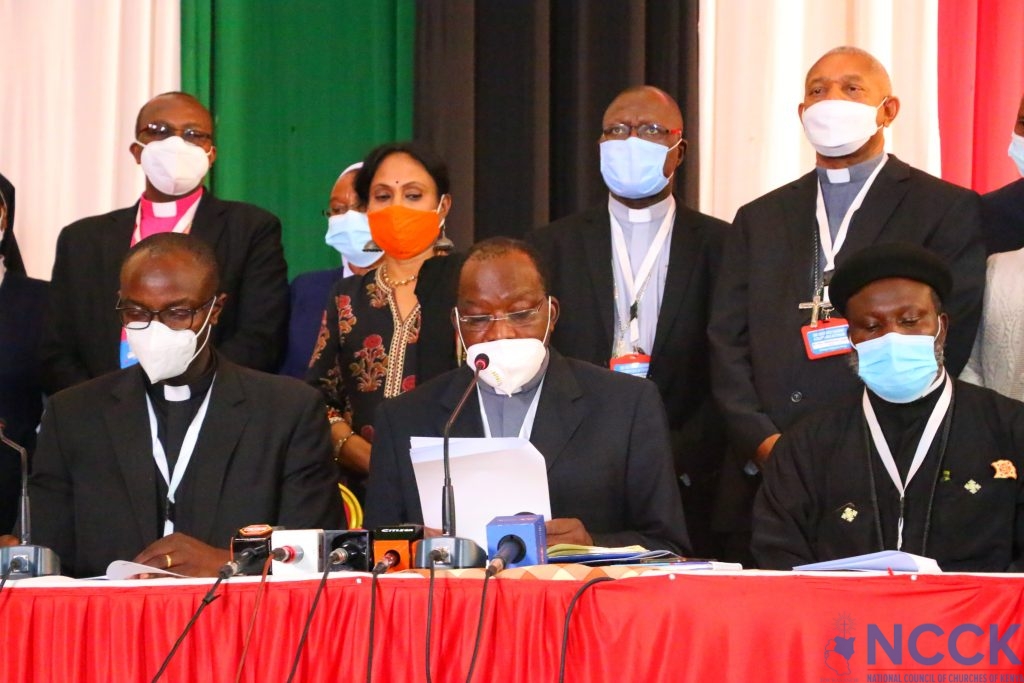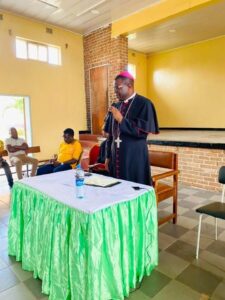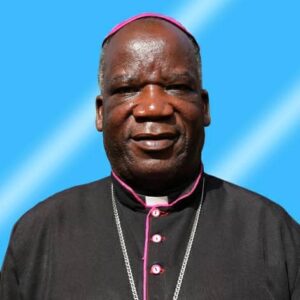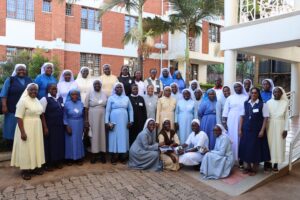KENYA: “Moral and Social Structures of Nation Threatened,” Religious Leaders Warn Ahead of General Elections

Sr. Jecinter Antoinette Okoth, FSSA
As citizens of the Republic of Kenya look forward to the forthcoming General elections scheduled for Tuesday, August 9, representatives of Religious leaders under the auspices of the Dialogue Reference Group (DRG) in their observation on the situation of the country, have warned that “Moral and social structures of the nation are threatened, and require rebuilding to secure Elections 2022.”
Delegates of the DRG which comprise of eight different Religious groups, held a two-day meeting at Ufungamano House in Nairobi “to assess Kenya’s readiness for 2022 General Elections and make recommendations on existing gaps.”
Analyzing various concerns that the nation needs to address prior to elections, the delegates in their 3rd National Religious Leaders Convocation observe that the country is not yet ready for the elections as they decry “corruption, impunity, lawlessness, insults and incitement to violence” which are happening “with abandon, and Kenyans are sinking deeper into despair and depression.”
“It is a great pain for Kenyans that political and state leaders have in the last 15 years deliberately neglected to address the issues of electoral justices, which exposes the nation to a repeat of the pre and post-election violence and crisis,” Religious leaders lament in their communiqué signed by eight representatives of Religious leaders Thursday, January 20.
As concerned citizens, the delegates of the interreligious entity steered by Archbishop Martin Kivuva Musonde of Mombasa Archdiocese and the Chair of the Kenya Conference of Catholic Bishops (KCCB), invite all Kenyans to “commit to pray and fast for the nation so that God intervenes and safeguards the lives and wellbeing of all,” since the nation is in “real danger of sinking into violence before, during and after the 2022 General Elections.”
Based on this need, the leaders request each individual to select a day of fasting weekly and dedicate time to pray for the nation, as “we organize prayer sessions in our places of worship where we will welcome the elections related institutions.”
The convocation pointed out that the electoral legislative framework is still pending work in Parliament that need to be fine-tuned saying, “Of note is the need for completion of the Campaign Financing (Amendment) Bill 2020; Framework for Realization of the 2/3 Gender Rule; Political Party Primaries Bill; and others.”
“Towards this, we have committed to engage parliamentarians at the local level to mobilize them to prioritize the elections related laws. This will be in addition to reaching all concerned institutions to ensure that the laws are implemented and adhered to,” they said.
Noting that elections management institutions in Kenya are “heavily impeded from executing their mandates,” members of the DRG have committed to “support the Independent Electoral and Boundaries Commission (IEBC) to deliver the quality of elections envisaged in Article 81 of the Constitution of Kenya 2010.”
As a way forward the Religious leaders promise to pray and offer spiritual and pastoral support to the IEBC staff at national, county and sub county levels and invite them to places of worship for prayers. Besides, they hope to “seek an appointment with the Cabinet Secretary for Treasury and the National Assembly Budget and Appropriations Committee to push for early and adequate disbursement of funds to the IEBC so that they complete the preparations for the General Elections,” and also meet the “Inspector General to emphasize the absolute need for assurance of protection of elections officials and immediate arrest and prosecution of perpetrators.”
Raising concern on security issues in the country, the delegates highlighted that such institutions “are clearly and progressively losing control of the situation in the country,” hence increased ‘violence and killings.”
“The National Police Service has been accused of favoritism, disregard for rule of law, and gross human rights abuses,” reads part of the Thursday communiqué as the Religious leaders commit to “engage the Inspector General, as well as security agencies at national, county and sub county levels to advocate for equitable implementation of the law,” and Where necessary, set up intelligence committees to investigate the identities of the people being killed as well as their killers and push for prosecution of the suspects.”
Additionally, the convocation underscored that weak civic competence of the public leads to citizens “either absconding the elections or voting for the richest candidates rather than the best qualified.”
They therefore promise to use “places of worship to mobilize Kenyans, especially the youth, to register as voters, use structures to deliver civic and voter education to empower the people to recognize their position as holders of Kenya’s sovereignty and deliver messages of peace and national cohesion through pulpits and all other public forums they have access to.”
In conclusion, the Religious leaders lament “the widespread impunity manifested by political actors as they engage in early campaigns,” leading to increased cases of incitement to violence and hate speech.
“We commit to reach out to His Excellency President Uhuru Kenyatta and appeal to him to disengage from the succession politics,” since he is” the symbol of national unity as provided for Article 131 of the Constitution of Kenya 2010, and so he should remain above partisan politics, recognizing that he is the President of all Kenyans,” they said after the two-day meeting adding that the will also reach out to the Deputy President, HE Dr. William Ruto, to point out that he is using public resources and institutions to undertake partisan presidential campaigns, which goes against the values espoused in Article 10 of the Constitution.”


